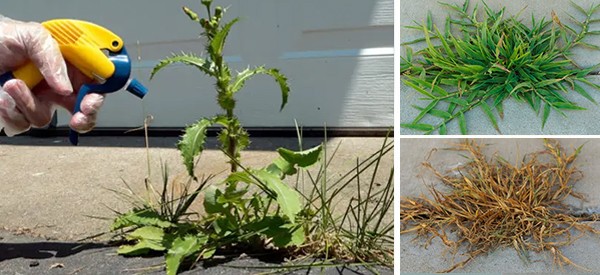
DIY Natural Weed Killer
Most gardeners will probably agree that they do not want weeds in their gardens and that they would prefer to use more natural methods to get rid of them and avoid resorting to chemicals. After all, you all want healthy plants and vegetables and an outdoor space that is safe for you, your families, pets, and all the insects we need and want to protect. So, how does one set about making a DIY weed killer that is natural and effective and usually inexpensive?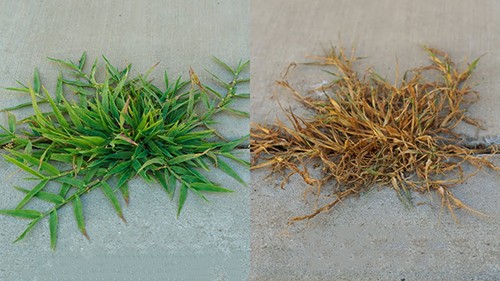
There are in fact a surprising number of options. First, though, you need to think about where the weed killer will be used. Even if you use natural, homemade weed killers, some will affect the soil to a degree. For example, some DIY solutions change the pH or acidity levels in the soil which may impact on what kinds of plants you can grow – if any – in that area in future.
Weed Killer For Areas You Will Be Replanting In
You have several options when it comes to killing weeds without damaging the soil or the microorganisms and organisms that live in it:
Vinegar
This common household ingredient works on small or young weeds. However, while you can use any brand, it must contain more than 5% acetic acid to be effective.
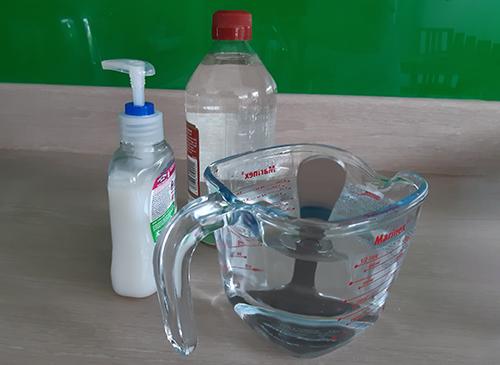
Recipe:
- ½ gallon / 2 ¼ liters of white cooking or distilled vinegar.
- ½ gallon / 2 ¼ liters of water.
- 1 tablespoon vegetable oil or liquid soap which helps the solution coat the leaves.
Instructions:
- Place the mixed solution into a spray bottle.
- Set the nozzle to ‘jet’ or ‘stream’ and not ‘spray’ so you have better control over where the solution goes.
- Spray onto the leaves being careful not to spray any non-weeds.
- Do not use too much so that the soil does not soak up a lot of solutions.
- Use it on a sunny or warm day as it speeds up the process.
Cautions and notes:
- Vinegar will burn and kill any leaves it is sprayed onto. For this reason, it should not be used on lawns or close to plants.
- If you soak the soil with vinegar it will change the acidity levels of the soil. Too much and you will not be able to grow anything there.
- It doesn’t destroy the roots, only the leaves.
Mulch and soil covering
Like all plants, weeds need light and space to grow. By using something over the soil the blocks light and smothers growth you can suppress weed growth without affecting the soil or other plants. There are several options:
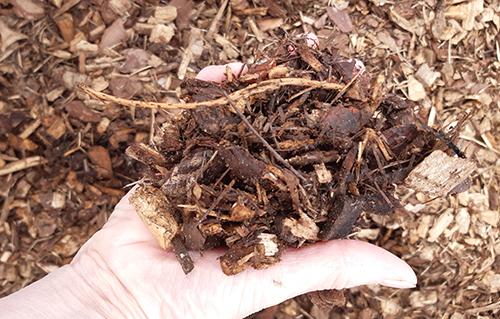
- You could use bark, wood chips, or straw. However, this can be costly unless you can come to an arrangement with a local sawmill, lumber yard, or farmer. Simply spread a layer over the area involved. With small pieces of bark, the layer should be 2 inches / 5 cm thick. With straw and larger pieces of bark you need to spread it 3 – 4 inches / 7 ½ – 10 cm thick.
- Another option is the garden membrane or fabric. Laying it isn’t easy if you have plants to accommodate and, like bark, it may be expensive. In addition, the membrane also needs to be covered with soil or mulch.
- An inexpensive and effective covering is newspaper or cardboard. To stifle weed growth by cutting out light and air, you need a layer of two sheets of cardboard or four of the newspaper. As with membrane, this layer also needs to be covered so that it is not unsightly.
All these methods are 100% eco friendly and the bark, wood chips, paper, straw, and cardboard all break down well. As the weeds are unable to germinate or seed, the area should stay weed-free for at least a season, unless there are airborne seeds that land on the surface and germinate.
Boiling water
Pouring boiling water on small/young weeds or those with shallow root systems should kill them. However, this is not a solution if the boiling water does not reach and kill the root; only the leaves will die, and the weed will grow leaves and shoots again.
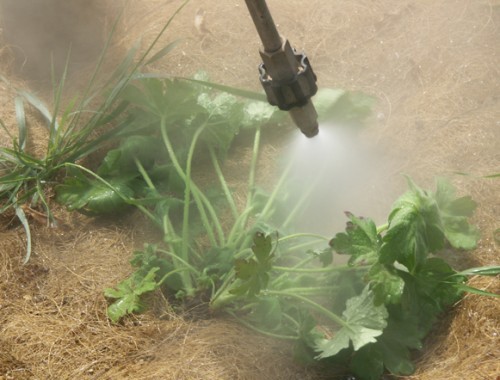
The advantages of boiling water treatment are that it is free, quick, and natural. However, if you pour boiling water on or near non-weeds, they will also be damaged or even killed. Also, any organisms in the soil will be ‘cooked’ and destroyed.
WEED KILLERS FOR AREAS YOU WILL BE NEVER GROW PLANTS OR VEGETABLES IN
These DIY weed killers are either so strong or alter the soil so markedly, or both, that you will not be able to use the soil again for shrubs, flowers, or vegetables.
For this reason, it is important to be cautious about where you use them.
Vinegar plus
This is an extremely strong solution that will leave soil unusable, sterile, and dead.
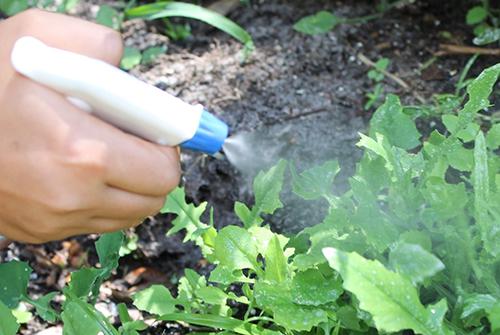
Recipe:
- ½ gallon / 2 ¼ liters of horticultural vinegar (20% acetic acid).
- ¼ gallon / 1 liter of water.
- ¼ gallon / 1 liter of lemon juice (contains high levels of citric acid).
- 1 tablespoon vegetable oil or liquid soap.
- 1 – 2 tablespoons of rubbing alcohol or of inexpensive gin or vodka (any brand).
- 1 cup of table salt.
Instructions:
- Mix the solution thoroughly
- Place the solution into a spray bottle or dedicated watering can.
- Spray or pour onto the weeds.
- Use the mixture on a sunny or warm day as it speeds up the process.
This solution will penetrate the soil, kill the roots, and significantly lower the pH. In addition to preventing any weeds – or any other plants – from growing in the area again, this potent solution also kills soil organisms.
Salt
You could pour dry table salt directly into weeds. However, this can be a slower way to use salt as a weed killer.
A liquid solution is usually quicker and more effective.
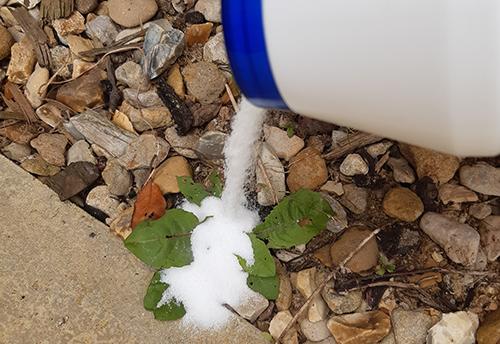
Ingredients:
- 3-parts iodized or un-iodized table salt (not Epsom salt, rock salt, or sea salt).
- 1-part vinegar or boiling water.
- 1 teaspoon of liquid soap.
Instructions:
- Stir the mixture well.
- Leave it to stand for 10 minutes to ensure most of the salt is dissolved. It does not matter if not all the salt dissolves completely.
- Pour the solution directly onto the weeds.
Be careful about how and where you use these substances or solutions so that you do not damage non-weeds or yourself. Even vinegar can result in skin irritation and – in some people – an allergic reaction.
You may also like:
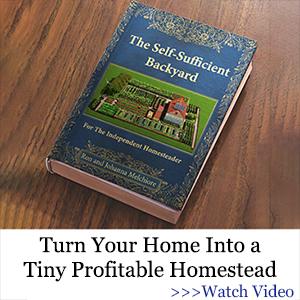 7 Backyard Poisonous Plants That You Can Use as Medicine
7 Backyard Poisonous Plants That You Can Use as Medicine
The ‘Superweed’ That Saved Large Communities During The Great Depression (Video)
DIY Mosquito Trap That Really Works!
How to Tell the Difference Between Yarrow and the Poisonous Hemlock
How to Make Cabbage Bandages to Treat Inflammation and Joint Pain

I have well water. Will all this be safe for the people drinking the water?
Your well should be deep enough, typically new well are around 95 ft down,unless you are on an Artesian well then I would be careful of any you are putting in the ground
1.) 1/2 gallon is not the same as 2.25 liters.
2.) Increasing acidity lowers pH; it does not raise it.
Hi Fink,
Thank you for letting me know.
I will make the appropriate changes.
God bless,
Claude
How about using grass clippings for mulch? My dad aways used the bagged clippings from our neighbors’ lawns. Of course, he only used the clippings of the neighbors’ lawns who didn’t use weed and feed or other chemicals. He would pile the grass clippings 3 to 4 inches deep. This would also keep in the moisture so he didn’t have to water the garden as often.
Your dad is/was a smart fellow!
Thank you Nicole for your book “ Lost Book Of Herbal Remedies. I am looking for your recipe for Leaky Gut Blend. I could not find it in your book.
Thank you for your help .
Hi Patty,
Thank you so much for your comment and for your kind words as well.
We truly appreciate it.
God bless!
Did you ever get the recipe for leaky gut??
Can I please get the recipe for you leaky gut blend?
Thank you for the wealth of sharing. Im rich already because of you..
Hi Earl,
Thank you so much for your comment.
We really appreciate your kind words.
God bless!
Seems like the safest way to get rid of weeds is to weed? These alternatives are an option. Do weeds have a purpose?
Hi Deborah,
Thank you so much for your comment.
The options presented here are proved to be useful.
Some weeds are beneficial and some are not. The ones who are not beneficial may harm the good plants.
God bless!
My only comment is, why use water other than to create greater volume? It will effectively reduce the pH of the vinegar because it dilutes it by 50%. I use straight table vinegar with salt and soap, but using the ag vinegar would be better, just don’t dilute it much with water for a better kill!
Hi Stephan,
Thank you so much for your comment and for your piece of advice as well.
The water is used in order not to harm the quality of the soil.
God bless!
We have small cactus that grows in patches all over the hillside and it is spreading.. They are small, (about 1-2″ long) oval shape and have long spines. Nasty! We can’t find a way to kill them. Can you help?
Hi Dianne,
Thank you so much for your comment.
Vinegar has long been used to control weeds, including those of the succulent variety. Combing 1 tablespoon of vinegar and 1 tablespoon of gin with 1 quart of water may kill cactus plants. Wait a 2-3 weeks after applying the homemade weed killer before planting in the area.
God bless!
Raising the acidity level should lower the pH not raise it.
Hi Michelle,
Thank you for your feedback.
We will make the appropriate changes.
God bless!
this has nothing to do with weeds.
Is there anything you could suggest for the relief of Meniere’s disease.
Hi Jenny,
Meniere’s disease might me a response for a compromised immune system so you might want to add to your diet some of the nature’s immune boosters like: Hops, Turmeric, Sarsaparilla, Nettle, Green tea and Ginger.
Also reduce your salt and sugar intake and avoid caffeine.
God bless!
I also suffer from Meniere’s Disease. There are exercises that you can do to alleviate the symptoms. They are very helpful. Watch some YouTube videos that show you how to do them. I do these exercises when I feel some symptoms starting.
Ménière’s disease is an inner ear disorder that causes episodes of vertigo (spinning). The disease usually starts in one ear, but later may involve both. Smoking, infections, or a high-salt diet may worsen the disease.
Symptoms include a spinning sensation (vertigo), hearing loss, ear ringing (tinnitus), and ear pressure. The vertigo may cause severe nausea, vomiting and imbalance. Hearing loss may become permanent.
Drugs for motion sickness or nausea may help manage symptoms.
Hi Jenny,
Thank you so much for your comment.
I advise you to consume green tea, ginger, turmeric and nettle. You can add them in your food or prepare a tincture.
God bless!
best cbd oil for pain
Be very careful if you use cardboard boxes to cover areas for weed control or between rows of vegetables in a garden! Many grocers use pesticides and other toxic sprays on their fruits and vegetables and even cans and boxes . The cardboard will sometimes have these toxins in them which will kill or negatively affect surrounding vegetation. My mother in law lost her entire tomato garden using boxes that had held fruit. Makes you realize how important it is to wash your fruits and veggies and tips if cans before opening them!
Great comments and replays some great ideas
I’m thankful for articles like this that can help people manage their health and wellness. We need to know every little detail that can enhance our living while also ensuring our safety. However, we should never forget that when we want to try something new, especially for our health, it’s essential to consult a doctor or an expert to ensure that the product is appropriate.
– Dan White
https://joyorganics.com/
Cardboard boxes and newspapers are yummy to slugs. I got a fantastic crop of slugs when I put newspapers out. Won’t use them again.
i wish i was young again, there is so much to learn
Well said!
https://tbhandtc.com/
I ordered books and got charged but never recieved the books
Hi Michael,
Thank you for your interest in our work.
Please check your personal email. I sent you an email regarding your book order.
Many blessings and good health!
Even though many states are already allowing weed plants and their uses, there are still a lot of people who are not in favor of it. This article is very informative and would be very helpful for people who don’t want to grow weeds in their gardens because this was able to provide detailed information on how to naturally get rid of any weeds.
Liam Wilson
https://primabee.com/
Hi, what kills creeping thistle and hemlock please, but won’t harm our sheep grazing in the field? thank you so much
Thank you for this informative article, Susan. As a person who loves gardening, the information stated in this post would really be helpful in maintaining my garden healthy and clean without harming my other plants.
Brooklyn Williams | chummysorganix.com/
How about getting rid of morning glory or bindweed?
[…] DIY Natural Weed Killer […]
Is there a natural killer for bindii?
We’ve been using the vinegar treatment for years. We were advised to never add salt because it will make the land sterile for many, many years, maybe decades. Plus, the salt can get accidentally spread around to growing areas. The horticultural vinegar solution works really well without the salt.